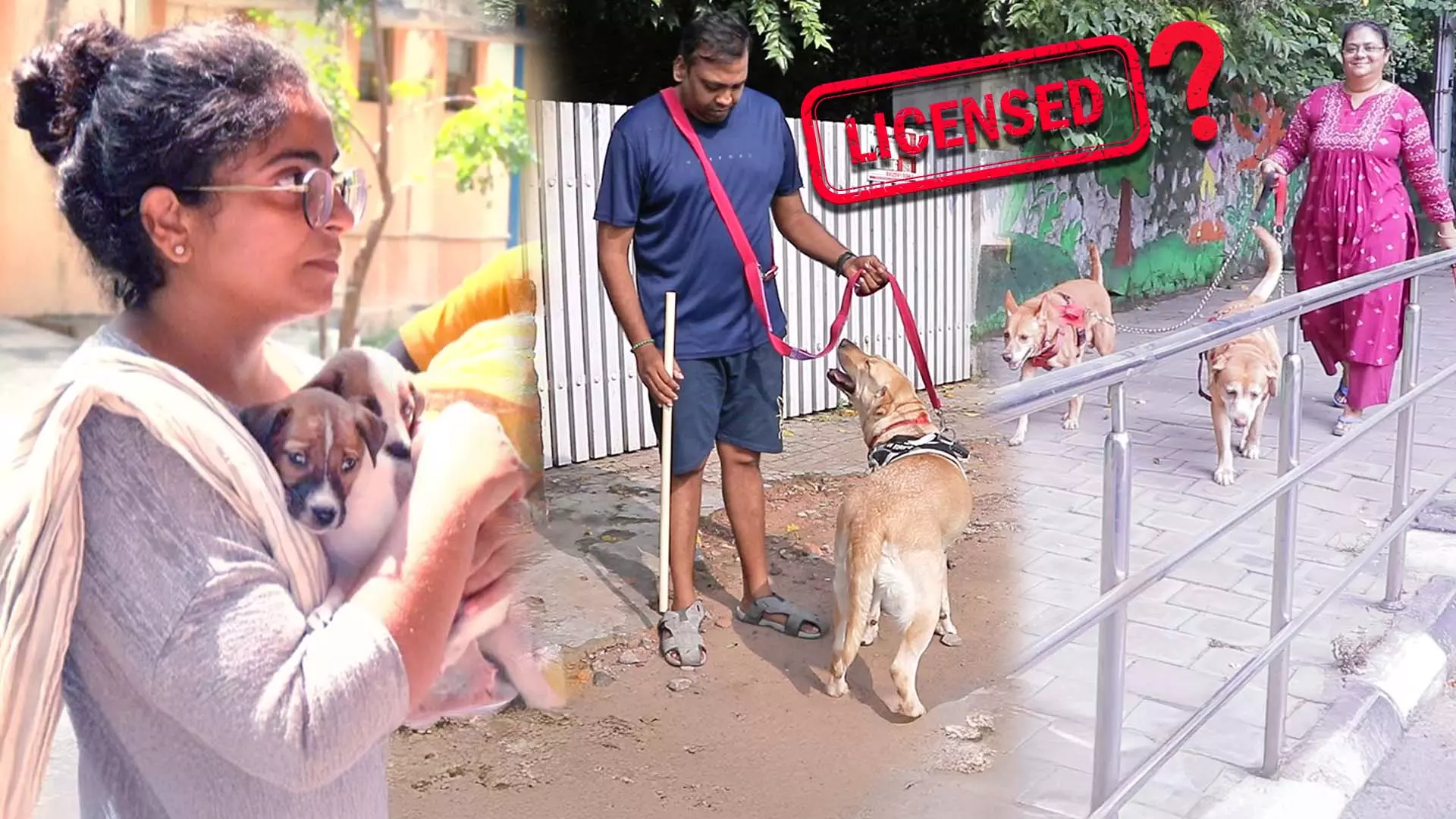
Rs 5,000 fine for unlicensed pets: Will it make owners more responsible?
From November 24, Chennai pet owners must register their pets or pay steep fines. Will the move ensure accountability and end pet abandonment?

In a bid to ensure vaccination compliance and responsible ownership, the Greater Chennai Corporation (GCC) has rolled out new regulations for pet owners. Starting November 24, pet owners who fail to obtain licences will face a ₹5,000 fine, while taking pets out without a collar could cost an additional ₹500.
Officials say these measures are meant to enforce regular anti-rabies vaccination, discourage pet abandonment, and improve public hygiene. “Vaccination is a must. Only if you have a current vaccine record, your pet licence is given,” an official explained.
Curbing pet abandonment
During the pandemic, many people adopted pets for companionship. But when life returned to normal, several ended up abandoning their pets. “Having a dog is a lifetime commitment. Unfortunately, once the puppy grows up, many abandon them,” a resident said.
Areas like Besant Nagar and Blue Cross shelters have turned into dumping grounds for abandoned pets. Surveillance cameras have been installed to monitor illegal abandonment, but animal activists say the trend remains “very bad.”
Awareness and accountability
Pet owners believe that the new rule will make people more responsible. Some, however, are still unaware of how to register. Others expressed confusion about microchipping, which is part of the new licensing process.
“This is a beach area, and every day at least two pups are abandoned,” said a long-time resident. “We’ve seen Pomeranians and other breeds being dumped. People should think before bringing home a pet.”
Many owners admit that microchipping could actually help track pets and hold owners accountable.
Clean streets and better image
Under the new rules, pet owners must also ensure their animals do not defecate in public places — and must clean up if they do. Repeat offenders could face stricter penalties.
Dog owners agree this will improve public hygiene and social acceptance. “Microchipping helps track pets and identify owners who abandon them. It also improves the image of dog ownership,” one owner said.
Another added, “Owners should clean up after their pets. It keeps the community safer and cleaner.”
Implementation and challenges
The GCC says these rules will be strictly enforced through door-to-door checks. Pet owners must provide a photo, vaccination certificate, and a ₹50 fee to obtain a licence. So far, the city has issued around 9,500 licences, while the pet population is estimated at 1 lakh.
The civic body is procuring 2 lakh microchips and 80 radio frequency ID scanners, while anti-rabies vaccinations are being offered free of cost at six corporation clinics.
However, some residents warn that the ₹5,000 fine might deter low-income families who genuinely care for their pets but are unaware of the licensing process. “The rule will help regulate ownership,” a pet lover said, “but awareness must increase before penalising people.”
With tighter checks and data-linked microchipping, Chennai’s pet policy aims to promote responsible ownership and animal welfare. Whether the initiative succeeds will depend on public awareness and consistent enforcement.
The content above has been transcribed from video using a fine-tuned AI model. To ensure accuracy, quality, and editorial integrity, we employ a Human-In-The-Loop (HITL) process. While AI assists in creating the initial draft, our experienced editorial team carefully reviews, edits, and refines the content before publication. At The Federal, we combine the efficiency of AI with the expertise of human editors to deliver reliable and insightful journalism.

